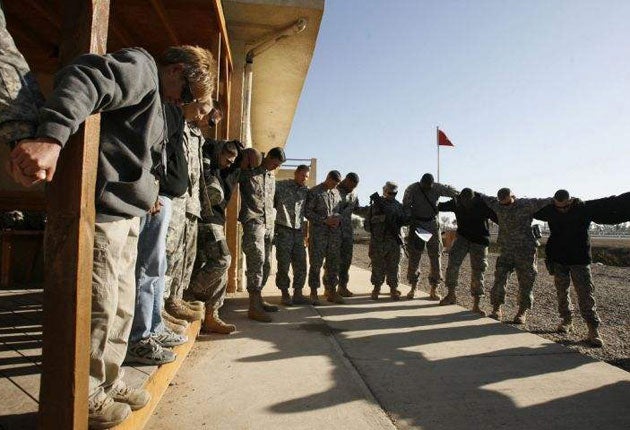Rupert Cornwell: Hillary Clinton will have to make her vital choices quickly
Obama’s agenda– Part 3: Foreign policy

The State Department, Hillary Clinton declared at her Senate confirmation hearing this week, would be "firing on all cylinders" the moment she takes over as the country's top diplomat. It will need to be. Rarely has a new administration come to office with a more daunting foreign policy in-tray.
On issues ranging from Iraq to Afghanistan, from Iran to Darfur, from the tortuous nuclear negotiations with North Korea to policy towards an evermore assertive and nationalist Russia, the incoming Obama team must quickly make important choices – at a moment when its top priority is, inevitably, the domestic economic crisis.
But a key test of the new administration's intentions will come virtually on Day One, with its response to the bloody fighting in Gaza that has made a Middle East settlement even more remote. Both Barack Obama himself and Mrs Clinton have thus far kept their cards close to their chest, insisting that George W Bush alone is in charge of the United States' foreign policy until noon on 20 January.
But some signs have emerged that the US will take a more sympathetic line to the Palestinians. In her confirmation hearings, Mrs Clinton stressed the "tragic humanitarian costs" borne by Gaza's population, and indicated that the Obama administration, unlike its predecessor, would be vigorously involved in Middle East peacemaking from the start.
Like the President-elect, she has pledged continuing US support to the Jewish state. But the key question has yet to be answered: Would President Obama and Mrs Clinton press Israel to make real concessions, specially over its settlements, to hasten the two-state solution that she herself argued this week had been made even more urgent by the violence in Gaza?
The new Secretary of State will be helped by the global good will generated by Mr Obama's election, and a widespread readiness to let bygones be bygones, closing the page on the tensions between Mr Bush and even close US allies, especially in his first term over the invasion of Iraq.
She will also be the beneficiary of a major structural change in American foreign policy making. Even Robert Gates, who is staying on as Pentagon chief under President Obama, is urging more resources for the State Department, and a greater role for diplomacy. The contrast could not be greater with the Bush administration, when former defence secretary Donald Rumsfeld, in alliance with the Vice-President, Dick Cheney, wrested influence away from the State Department.
That bureaucratic shift underlines the deeper shift likely under Mr Obama, towards a less abrasive, more multilateral foreign policy. This in turn means there will be more nuance too – a quality notably lacking under Mr Bush, who this week defended to the last his aggressive and controversial policies in his "war on terror".
The absolute distinctions he had drawn between "good" and "evil", said the outgoing president, "had made some uncomfortable". But he acknowledged in a valedictory TV address on Thursday: "Between the two there can be no compromise."
A willingness to compromise (albeit not a readiness to surrender vital US interests), will be more visible under President Obama, especially on issues such as climate change, and probably in the round of international talks soon to begin in Copenhagen, Denmark. There will also be a greater readiness to talk to adversaries, even though Mrs Clinton will be anything but a pushover at the negotiating table. No adversary is more problematic than Iran. Reportedly Washington last year rebuffed an Israeli request for bunkerbusting bombs to use in a military strike against Tehran's nuclear installations. But with Iran close to becoming a nuclear power, and the failure of negotiations to resolve the impasse, the Obama administration will soon be forced to choose. Like Mr Bush, he has said that a nuclear-armed Iran is unacceptable. By comparison, Iraq and Afghanistan, the wars he inherits, are relatively straightforward issues. In the former case, Mr Obama will accelerate the drawdown of US troops; some will be sent to Afghanistan, where, he says, Mr Bush should have focussed his attention all along.
Happily for the new President, he can also take some simple decisions – "low-hanging fruit" in the parlance of his aides – that will instantly differentiate him from Mr Bush. One is an executive order closing down the prison at Guantanamo Bay, although implementation may take many months. Another is an easing of travel restrictions on Cuba, a first step towards lifting a US embargo opposed by the rest of the world.
Join our commenting forum
Join thought-provoking conversations, follow other Independent readers and see their replies
Comments
Bookmark popover
Removed from bookmarks